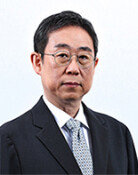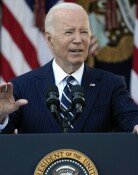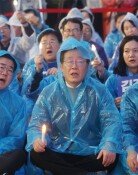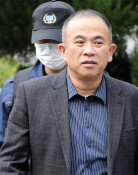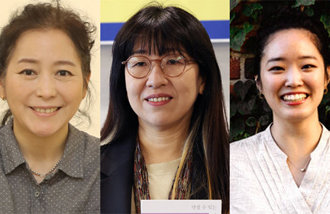North Korean Leader Kim Stresses Competence To His Staff
North Korean Leader Kim Stresses Competence To His Staff
Posted May. 02, 2007 03:39,
Personnel appointments for high officials in North Korea are decided by Kim Jong Il, the Chairman of the National Defense Commission. Defectors from and pundits of the Stalinist state all agree that in order to be promoted to a high rank, and especially to those posts that are involved in the decision-making processes, it is essential to be favored by Kim.
Nevertheless, personnel affairs in Pyongyang have their own principles as well that are untouchable even by Kim.
The first principle is to respect revolutionary veterans. In a 1995 statement, Kim said himself, It is a divine moral obligation of revolutionaries to esteem seniors of the revolution. For this reason, the average age of staff members in the three major power structures are very highthe National Defense Commission: 74; the Politburo: 80; and the Secretariat: 77.
Since most of them keep serving until they die or suffer a serious disease, it is in effect stipulated that old officials never get fired; they just fade away.
Another principle is that loyalty to Chairman Kim precedes all other criteria. Therefore, cruel retaliation follows actions that cast any kind of doubt on ones fidelity. Hong Soon Ho, Kim Dong Yi, and Lee Dong Ho were close associates to Kim since they met in college. They made significant contributions to the states efforts to establish Kims image as his fathers legitimate successor. However, they were executed or thrown into concentration camps in the 1980s, after leaking information on their leaders biography fabrications while drinking.
Kim Dong Gyu, the vice President in 1976, was also purged after he criticized Kim Jong Ils sharing the right to make staff appointments with his father, President Kim Il Sung. Kim Dong Gyu denounced the premature realization of the blood-based succession system and the disorders in personnel policies caused by the chief leaders son.
However, small changes were made to Kim Jong Ils doctrines as the country underwent the period of the Arduous March in the late 1990s, in which millions of people may have died from hunger.
In a January 2001 meeting with chief officials in the partys Central Committee, Kim Jong Il said, Many officials say that they will respond to the partys trust in them with loyalty, but a response should be based on competence, not words. He also said, Competence is not an element to be combined with loyalty. It is loyalty per se.
In this context, core elites of the party and army, which are also pillars of the Military-First (Songun) policy, remain intact, while cabinet members and posts related to economic policies and inter-Korean relations experience swift generational changes.
taewon_ha@donga.com



